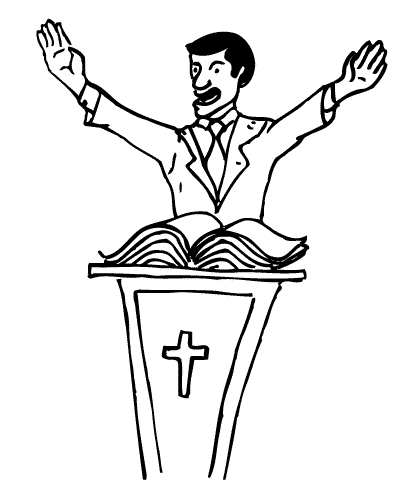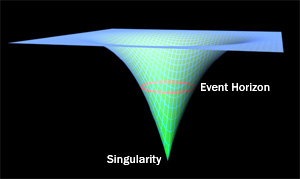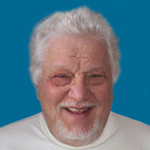
I've lost a member of my 'following'. That doesn't sound creepy at all, does it? :S
In any case, I can only guess that it's because I haven't been posting as much these past couple of months. One of my readers quipped to me at lunch the other day that she comes by the site a couple of times a week, but "meh. There's nothing new." That's true: I haven't posted anything new.
Sadly (for me, that is), not having electricity at home renders self-publishing on the internet a trifle difficult. Hopefully November will turn up some more practical living arrangements, however. Not that living in the bush with no running water, and no electricity isn't practical -- it's the
original practical, when you think about it -- it's just not cosmopolitan enough to warrant something so fancy as electricity.
On another note, a friend of mine asked me how my agnosticism is coming. I'd like to take a moment to shout out to Aaron. I miss your tongue-in-cheek humour, bud! Nevertheless, it would be unfair of me to leave this blog dangling, as it were, on the hooks of my last two articles. They were, admittedly, somewhat maudlin and full of serious doubts. Aaron picked up on the natural conclusion to some of my meanderings: that I seemed to be turning agnostic.
I'll admit, things have been taking a radical turn-around for me. The history of the church, of my Christian beliefs has been put under intense scrutiny this past while. I've had questions about
inspiration,
inerrancy (I plan to buy that book,
Ed!), the legitimacy of
dogmatics,
ecclesiology, the efficacy of prayer, the nature of
truth,
epistemology and
revelation,
illumination, the list goes on. In a nutshell, I've been re-visiting the truth-claims of my faith.
Some of them I've found wanting. For example, the purported necessity for a
hierarchical church structure. I used to be
Lutheran. I used to believe that a very definite, rigid structure needs to be in place; one ruled, as it were, from the bishop down through the clergy. While I agree with the
biblical precedent for the necessity of elders, bishops, and deacons (the office I was ordained into in 2004), I disagree that the laity is under the rule of said 'servants' of the Church. In short, bishops, elders, and deacons are to
serve the Church (i.e., the people of God) without reservation or prejudice toward certain faith traditions, and without
jockeying for lordship amongst themselves (e.g., the Roman church's apotheosis of the
bishop of Rome to a jurisdictional authority over all other bishops). The needs of the people
should always outweigh bureaucracy. In the same way, the true servant of God always considers the needs of the people as irrefutably more important than the polity of his ecclesial (church) community.
Recognizing that, I could never be a sold-out, hardcore Lutheran. Nor could I ever be a friend to Roman Catholicism -- except to be the kind of friend who is willing to take scorn for attempting to correct a wrong.
Given that example of changes in my beliefs (not to mention many others), where am I as regards the Christian testimony? Well, rest-assured Aaron, I'm not agnostic. Nor am I an atheist. One wit I read about called himself a 'recovering Christian'. While I can appreciate the humour of his sentiments, I think that kind of terminology can be misleading: I'm not casting off an addiction; I never had one to begin with. I'm compelling myself toward the true, amorphous nature of
oecumenism -- that is, wholistic Christianity. I'm not hemming myself in by divorcing principalistic authoritarianism (e.g., Roman Catholicism) from real flesh-and-blood people. I'm pro-actively moving away from the apartheid mentality of Christendom; that is, Roman Catholicism cannot commune with Lutherans, Lutherans cannot enjoy the free-spirited nature of the Anabaptists, the Anabaptists cannot espouse the rich cultural and intellectual heritage of Roman Catholicism and Eastern Orthodoxy.
Enough. Grow up! The Western world got past the subjugation of peoples according to race -- thanks, in part, to the Church. However, the Western church cannot seem to get past its wanton need to subjugate its own people to this-or-that other faith-tradition. I refuse to take part in it any longer. And to a large degree, that will bring into question, if not stark contrast, my views about God, Jesus, and the Christian community. I'm prepared to answer those questions.
So, if any of you are interested, this is the place to ask those questions. I'm open to dialogue. And thank you, Aaron, for prompting me to write an answer to your question. I'm grateful for your concern, and humour.
 This is old news, but it does need reporting again. From me. Because I'm interested.
This is old news, but it does need reporting again. From me. Because I'm interested. That aside, however, I'd like to know if the bread is Wonder Bread. 'Cause wouldn't that just be the most awesomest blending of human ingenuity and divine intervention: "Need you wonder anymore, mortals, what bread thou needest? Thou shalt take of mine Mary loaf and be blessed"? And really, if you're going to theophanize on burnt bread, why not open a franchise and share the miracle with everyone? It'd certainly be a way to outstrip Jesus's feeding of the 5000. He only had five loaves to work with. But Mary, were she to snag a deal with Wonder Bread, would be able to claim the feeding of the, say, 2 billion!
That aside, however, I'd like to know if the bread is Wonder Bread. 'Cause wouldn't that just be the most awesomest blending of human ingenuity and divine intervention: "Need you wonder anymore, mortals, what bread thou needest? Thou shalt take of mine Mary loaf and be blessed"? And really, if you're going to theophanize on burnt bread, why not open a franchise and share the miracle with everyone? It'd certainly be a way to outstrip Jesus's feeding of the 5000. He only had five loaves to work with. But Mary, were she to snag a deal with Wonder Bread, would be able to claim the feeding of the, say, 2 billion!












































